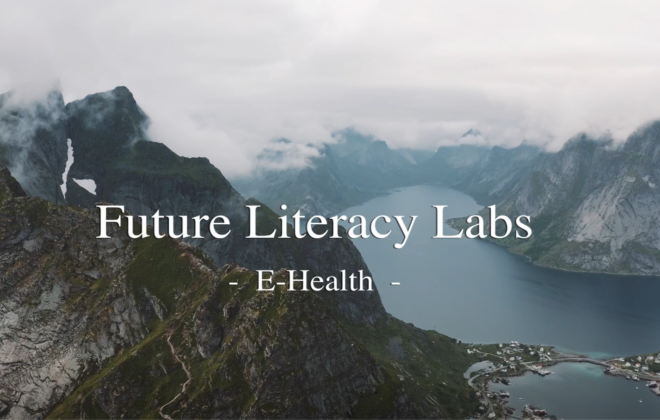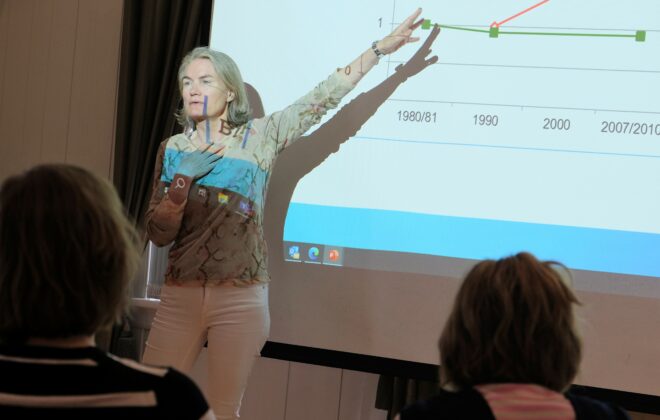Responsibility as care: The normative foundation of RRI
A holistic approach toward RRI is needed. We suggest understanding RRI through a care lens, as “care for what we share”. Separating RRI into the independent dimensions or indicators will leave us with a fragmented and compartmentalized understanding of RRI if we do not sometimes include a return to the basics.
To care for what we share
A central mandate and task in the AFINO project and network is to get a better grip on responsibility in science, research, technology, innovation, governance, industry, etc. This ambition is challenging and meaningful.
When humanists, such as these authors, approach a task, they recall the old dictum ad fontes – go to the sources! Three of the early sources for Responsible Research and Innovation (RRI) all appeared in 2013, namely the European Commission’s “Options for Strengthening Responsible Research and Innovation”; René von Schomberg’s “A Vision of Responsible Research and Innovation” and Stilgoe, Owen and Macnaghten’s “Developing a framework for responsible innovation”.
The Commission’s contribution reproduces the ancient distinction between caring for who and how we are on the one side and becoming better than we are on the other hand. It manifests itself and lingers in the modern-day limbo between a vision of continued growth vs societal needs and ethical issues. It is difficult to take one of its opening phrases, “there is a need to better incorporate ethical concerns in research and innovation” in any other meaning that these concerns are not well “incorporated”. “Incorporated”?
Ethics lack a body, as “incorporate” comes from a Latin verb meaning “embody”. Or has it always been like this? The Commission’s solution is to suggest making a policy (this is what the Commission always proposes in all fields; it is the Commission’s job to make European policy). The embodiment of responsibility, however, further disappears and is transformed into a functional requirement through the Commission’s hyper technical language.
And we quote the Commission:
“RRI refers to ways of proceeding in Research and Innovation that allow those who initiate and are involved in these processes at an early stage (A) to obtain relevant knowledge on the consequences of the outcomes of their actions and on the range of options open to them and (B) to effectively evaluate both outcomes and options in terms of ethical values (including, but not limited to well-being, justice, equality, privacy, autonomy, safety, security, sustainability, accountability, democracy and efficiency) and (C) to use these considerations (under A and B) as functional requirements for design and development of new research, products and services.”[1]
This definition of RRI brings to mind the great author Robert Musil (1880–1942) who defined the soul as “that which crawls away and hides whenever someone mentions algebra” in The Man without Qualities. The Commission’s algebraic formula (A + B = C) performs reduction of responsibility to an item. In our opinion this leads to commodification of responsibility to be subdivided into even more indicators.
Our suggestion is that responsibility as care and responsible research as care for the common good could move beyond this algebraic itemization where the indicators are given preference over the underlying substance.
The preposition for signifies care being a process, a caring activity, a relational and directional activity of concern or solicitude retaining a sense of attentiveness, conscientiousness, and devotion which cannot as easily be defined in time and space but requires reflection and attention.
René von Schomberg was looking for a way to ascertain a good direction for research and innovation.[2] A direction he identified as going towards Grand Challenges rather than aiming for a good life. He rejected the good life since it runs counter to the thought that there are many different conceptualizations of the good life, and the state (or EU) should abstain from choosing one of them.
Our suggestion is that there are alternative approaches to understanding the good life that von Schomberg left out, namely the good life as a caring life.
This brings us to the last RRI contribution, Jack, Richard and Phil and their so-called AIRR approach.[3] That is, responsibility as anticipation, inclusion, reflexivity and responsiveness. However, what is often relegated to second position when discussing their approach is their own definition: “Responsible innovation means taking care of the future through collective stewardship of science and innovation in the present.” (Stilgoe et al. 2013, xx).
We would suggest that RRI as care also includes caring for and (at least attempt to learn from) the experiences of the past, so one can develop competences to act in the present in order to create a vision of a future that is desirable and sustainable for all – including the planet. Rather than looking at how to split responsibility as care into the dimensions of anticipation, inclusion, reflexivity, and responsiveness, we suggest that one in understanding responsibility should move in the opposite direction:
How do these dimensions articulate different aspects of research as care for what we share?
How do anticipation, inclusion, reflexivity, and responsiveness articulate the different dimensions of RRI as care?
Anticipation
Anticipation is caring for the future. As we see it, a good practice would include developing visions for a valuable and beneficial future. As Chris Groves and Barbara Adam have argued, creating such futures that marks a direction for society is a contrast to the “empty” future of the market economy where only the free market decides where we end up.[1] Anticipation as caring for the future includes a positive political vision of the future that includes and adjusts for our mistakes in the past, and articulates moral demands on current society and citizens to steer towards this future vision.
Inclusion
Seeing inclusion through the care lens is understanding it as relation between people and institutions but also between people and other living entities. These other living entities do not have a language that is easily understood by people, but they might have a value independently of their usefulness to us. By living entities, we also mean that which makes life possible, but which our modern mind may not necessarily understand as “living”.
In other words, inclusion is the articulation of the demand to care for all and to protect that which makes caring for each other and the planet possible. To actually care about caring.
Reflexivity
Reflexivity is about the preconditions for our knowledge. These preconditions need to be investigated, and these are central to learning about the basis for how we relate to others. von Schomberg understood the good life as defined by what people hold to be good.
However, it is our claim that behind these different conceptions, there is the good life as the caring life that is the foundation for our capacity to have a good life. Furthermore, reflexivity understood as self-reflexivity, i.e. talking to oneself to be blunt, depends on the capacity to imagine oneself as someone to simultaneously care about and being inter-related to (and cared for by) others, both people and the natural world.
Responsiveness
Responsiveness is the basis of caring as a multi-directional activity, that is, responsiveness is at the core for developing a capacity for and competence to care. Care is to really attend to other people and the web of human and non-human relations they are situated within. It is about acting for and with others. It involves creating the desired future where care, people and other living entities can thrive.
Responsiveness is to be truthful in discussing the preconditions for and context of one’s knowledge.
Consequently, there is a dialectics in responsibility between different aspects or perspectives of the practice of being responsible and the basic caring attitude and actions. An embodiment of care into research and innovation involves an understanding and practice of acknowledging the competence of those involved as competent moral and professional agents.
*-*
Why care for care?
Just as the devil is in the details, caring might also be used to critically discuss and maybe change the practices, doxa, and tribal terminology in RRI/RI. A turn towards care would make a lot of things easier, clearer and more transparent. Let us give an example. When we address RRI in for example salmon farming, we use the word “stakeholder” – and in this phrase even the salmon, the cleaning fish and the sea lice are included as well as the whole value chain and regulatory authorities. If we rather than asking “who are the stakeholders?” would ask “who should we care for?”, we would find those of normative concern.
A different example can be found in the policy fields around research and innovation. The so-called keys of public engagement, gender equality, science education, ethics, open access and governance. Their nature of being a checklist is disturbing.
Rather, the quest for policy fields could better be addressed by the two-fold question: How can research and innovation care for what we share? How to care for research and innovation? Research and innovation are not only institutions and companies but individuals and collectives pursuing a better world (often) through a caring attitude. These efforts can, might and should contribute to policy, social improvement, and a sustainable future. But to achieve this institutions and companies must realize the tremendously important part they are playing in facilitating RRI as care.
[1] Adam, B., & Groves, C. (2011). Futures Tended: Care and Future-Oriented Responsibility. Bulletin of Science, Technology & Society, 31(1), 17–27. https://doi.org/10.1177/0270467610391237
[1] European Commission. (2013). Options for Strengthening Responsible Research and Innovation. Publications Office of the European Union. http://ec.europa.eu/research/science-society/document_library/pdf_06/options-for-strengthening_en.pdf
[2] von Schomberg, R. (2013). A Vision of Responsible Research and Innovation. In R. Owen, J. Bessant, & M. Heintz (Eds.), Responsible Innovation (pp. 51–74). John Wiley & Sons, Ltd. onlinelibrary.wiley.com/doi/10.1002/9781118551424.ch3/pdf
[3] Stilgoe, J., Owen, R., & Macnaghten, P. (2013). Developing a framework for responsible innovation. Research Policy, 42(9), 1568–1580. https://doi.org/10.1016/j.respol.2013.05.008

Erik Thorstensen
Erik Thorstensen leads the working group Building blocks for enhanced societal responsibility (WP4) in AFINO. Read more about Erik on AFINO's webpage.

Tim Dassler
Tim Dassler is researcher at GenØk – Centre for biosafety in Tromsø, Norway. He works on the assessment of ethical, cultural and social aspects of biotechnology and how to make research and innovation in these fields more responsible and sustainable. Read more about Tim on our webpage.




